Segments of this book originally appeared in the following edited volume and journals and are used here with permission: The Organized Crime Neighborhoods of Chicago, in Handbook of Organized Crime in the United States, Greenwood Publishing Group, 1994, reprinted courtesy ABC-CLIO Inc.; The Social Organization of Organized Crime in Chicago, in the Journal of Contemporary Criminal Justice 10, 4 (Dec), reprinted courtesy of SAGE Publications Inc.; The Black Mafia: African-American Organized Crime in Chicago, 18901960, in Crime, Law and Social Change, volume 38 (2002), 1, 3365, reprinted courtesy of Kluwer Academic Publishers Dordrecht; and The Forty-Two Gang: The Unpublished Landesco Manuscripts, in the Journal of Gang Research, volume 181 Fall 2010, pages 1938, reprinted courtesy of the National Gang Crime Research Center.
The view that a secret criminal brotherhood was transplanted to urban America at the end of the nineteenth century produced a formula that lazy, ill-informed journalists would regularly turn to when writing about organized crime that effectively absolved the United States from any responsibility for its drug and crime problems.
PREFACE
The idea for a study of organized crime in Chicago began when I was in grammar school. As a child, I had a great uncle who was not allowed to visit our home. When I asked my grandfather why we did not associate with Uncle Frank, he only replied that Uncle Frank did not work. I later found out that he was a member of the North Side Crew of the Chicago Outfit, the traditional organized crime group in Chicago. Growing up in the West Side of Chicago, the Outfit was a part of everyday life. I witnessed my first police raid when I was twelve years old as Chicago police rescued a juice loan victim who was being held in the basement of a local restaurant by neighborhood gangsters. I also remember being sent home late one evening by Chicago mobster Joseph Lombardo after he closed the corner where my friends and I hung out and drank beer long after curfew. As a teenager, I worked in a local grocery store. One of our customers was Ross Prio, head of the North Side Crew. His visits to our store were right out of the moviesbodyguards, black Cadillacs, and five-hundred-dollar suits. Who were these people? Why did the government allow them to exist? What was their relationship to our neighborhood? When I became a university professor and sought a research topic, the choice was easy. I chose to study organized crime in American society.
Research into organized crime presents difficulties not typically encountered in the social sciences. All societies have topics that are considered taboo. The study of organized crime is one of those taboo subjects. Facts and relationships are often uncovered that may be better left hidden. Because organized crime is sustained by collusion, corruption, and complacency, academics have largely ignored this important social problem. In fact, the academic community has been accused of damaging its own credibility by ignoring its moral obligation to remind society of the dangers posed by organized crime.
Sociology and organized crime grew up together in Chicago during the decades that followed World War I. There, sociologists at the University of Chicago were laying the groundwork for criminology as it is known today. Yet these sociologists, whose perspectives focused on life in the streets of Chicago, virtually ignored the phenomenon that became known as organized crime. While Chicagoans and the American public alike were reading about the exploits of Al Capone and other Prohibition-era gangsters in the daily newspapers, only one social scientist, John Landesco, was actively studying the problem of organized crime.
Landesco's book Organized Crime in Chicago is the single most important sociological work ever written about this subject. Although completed in 1929, Landesco's study did not receive wide circulation until it was reprinted in 1968. Its marginal status among the works of the Chicago School of sociology has become the subject of some debate. The recommendations regarding the control of organized crime made by Landesco and Ernest Burgess, who contributed to the original edition of the book, were not widely received by the academic community and other reformers of the period. Unlike most of the work of the Chicago School, Landesco's research was critical of the business community and government of Chicago.
Landesco's recommendations focused on the integration of immigrant communities, and in particular the Sicilian community, into mainstream American society; the creation of a system of boards of conciliation and arbitration to mediate labor disputes; the removal of politics from the police department; the control of juvenile delinquency; and the separation of the political machine and organized crime in Chicago. These recommendations made it clear that organized crime was rooted in the social structure of society itself. The history, economic system, political order, and stratification of Chicago were responsible for organized crime, not immigrant or recalcitrant members of society. Such findings gave rise to a significant number of questions that few people were willing to answer.
Even without the difficulties imposed by researching potentially taboo subjects, finding out about organized crime is very difficult. People do not always agree upon the meaning of the term organized crime. Does it denote a specific type of crime, such as violent crime and property crime, or is it a specific group of people? Is organized crime the type of crime that requires organization in its commission, such as gambling, prostitution, and narcotics trafficking; or does it refer to the Mafia or La Cosa Nostra?
Another problem encountered in researching organized crime is that much of what has been published was written for public consumption. Journalists, law enforcement officers, and government officials have written fanciful accounts about organized crime that are not constrained by the rules of careful scientific investigation as are the works of social scientists. In fact, the literature on organized crime contains so many contradictions that the reader can be reduced to a state of complete confusion when reading about this subject. Writers often use the terms Mafia, Camorra, Black Hand, Unione Siciliana, and Cosa Nostra interchangeably even though they denote entirely different groups of people and forms of behavior.
There are also a number of methodological problems involved in researching this topic. Participants do not want to talk about their illegal activities or admit involvement. Information sources, therefore, must often be circumspect and indirect. The ongoing activities of organized criminals simply are not accessible to observation by the ordinary citizen or social scientist. Even to gain access to the observations made by law enforcement and investigative bodies, one must have connections.

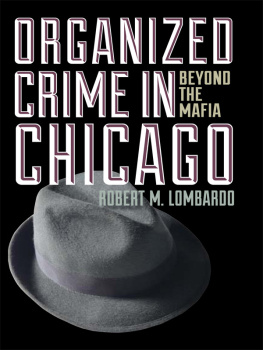
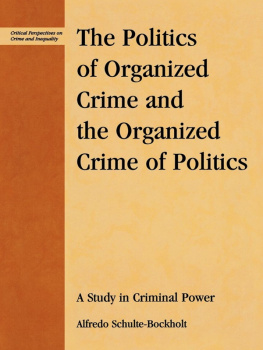


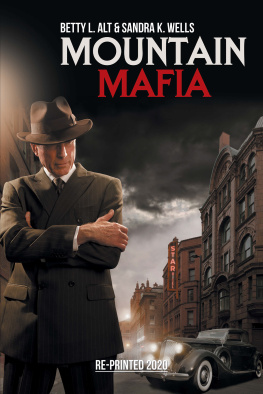
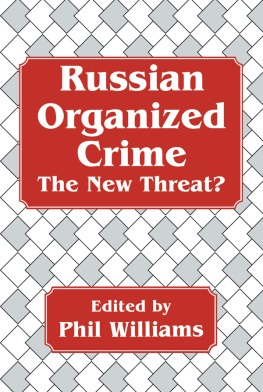
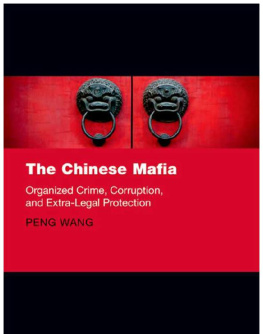
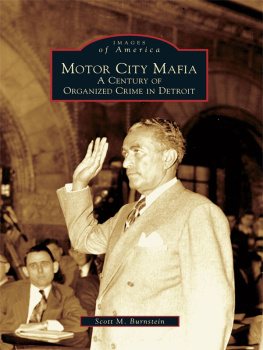
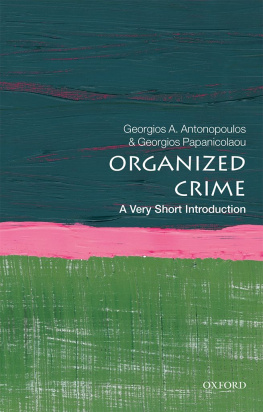

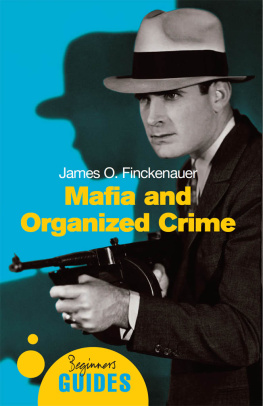

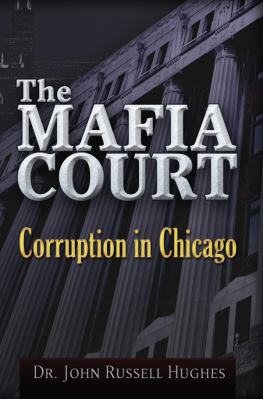

 This book is printed on acid-free paper.
This book is printed on acid-free paper.